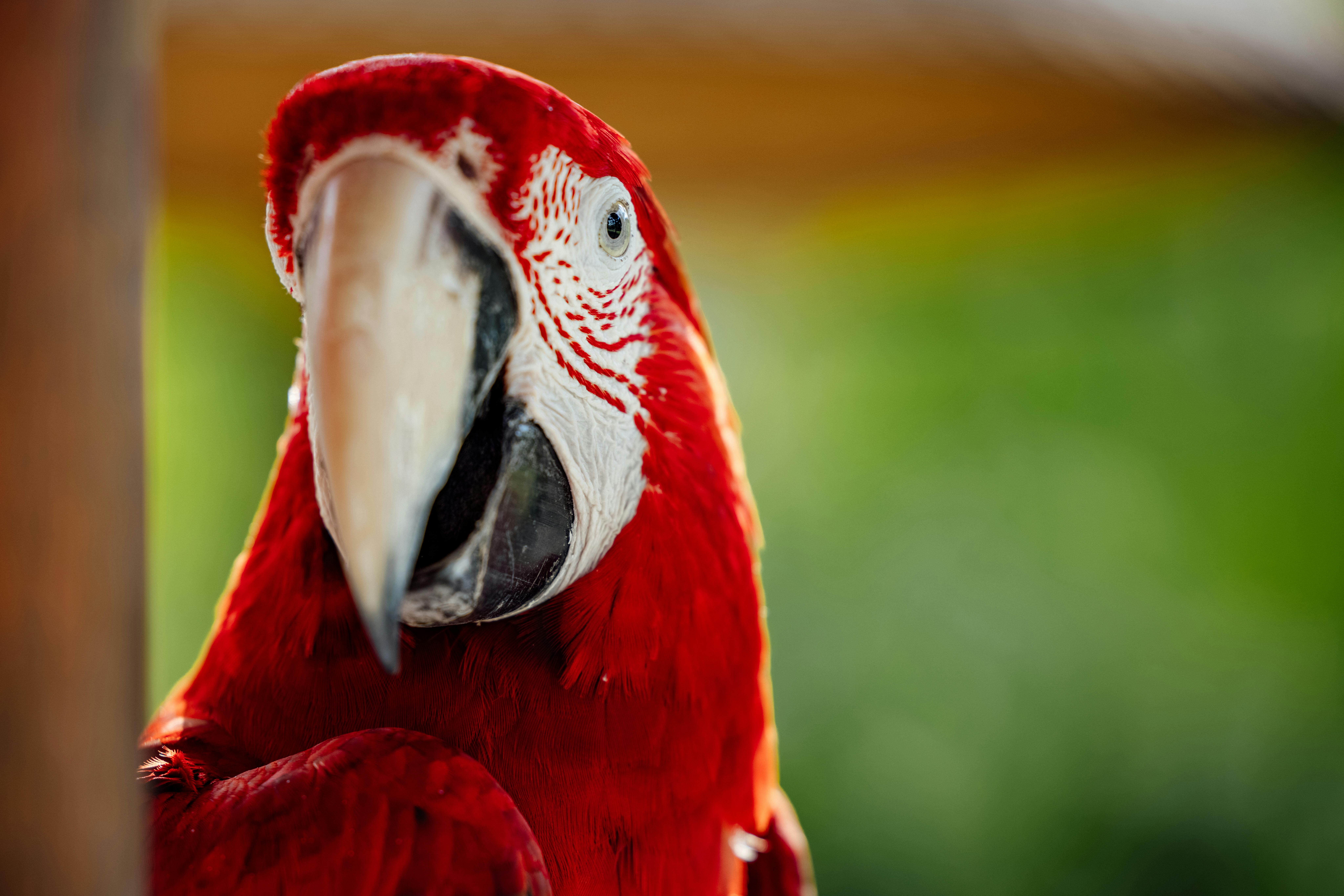Apply Now
How to Properly Feed Baby Rabbits: Essential Tips for 2025
Understanding Baby Rabbit Diet Needs
Feeding baby rabbits properly is crucial for their growth and overall health. Baby rabbits, or kits, have specific nutritional requirements that support their rapid growth during the initial weeks of life. It's essential to focus on a balanced diet that includes high-fiber rabbit diet options such as rabbit hay and nutritious rabbit pellets. Understanding baby rabbit dietary needs is the first step in ensuring their well-being.
The importance of fiber in rabbit diet cannot be overstated. A high-fiber diet promotes healthy digestion and prevents common health issues in rabbits. Introducing fresh vegetables for rabbits at the right time can also play a significant role in their nutritional intake, ensuring that they receive essential nutrients for optimal growth.
In this section, we will explore various baby rabbit food options, recommending the best bunny food to ensure your kits thrive. We'll also discuss the significance of transitioning from mother’s milk to solid food in a safe and effective manner.
Types of Baby Rabbit Food
When it comes to baby rabbit food, it's crucial to provide a variety of food types to meet their evolving nutritional needs. The best food for baby bunnies should include:
1. **Nutritious Rabbit Pellets**: These should be high-quality and designed for young rabbits, containing a balanced mix of nutrients.
2. **Rabbit Hay**: Offering unlimited access to fresh hay is vital. Sources like timothy hay or orchard grass are ideal as they promote healthy digestion.
3. **Fresh Vegetables**: As they grow, introducing safe vegetables for rabbits can add necessary vitamins to their diet. Vegetables should be introduced gradually to avoid digestive upsets.
Before adding new items to their diet, it's recommended to monitor their response. High-fiber rabbit diet options are critical to prevent obesity, so always ensure portions are kept in check.
Fresh Food Options for Baby Rabbits
Incorporating fresh food options can significantly enhance the nutritional profile of your baby rabbit's diet. It's advisable to introduce fresh vegetables slowly, observing for any allergies or digestive issues. Key fresh foods include:
- **Leafy Greens**: Romaine lettuce, cilantro, and kale are excellent choices.
- **Carrots**: These are often favorites but should be given in moderation due to their sugar content.
- **Herbs**: Fresh herbs like basil and parsley can add variety and tastes that many rabbits enjoy.
When creating a rabbit veggie mix, always ensure vegetables are thoroughly washed and chopped into manageable sizes. Homemade rabbit food options can also be prepared, combining safe vegetables and hay for optimal nutrition.
Feeding Baby Bunnies: Schedule and Guidelines
Establishing a consistent feeding schedule for baby rabbits is crucial for their development. For the first few weeks, baby bunny nutrition primarily comes from their mother's milk. If orphaned, a commercial milk replacer designed for rabbits should be utilized.
As they begin weaning, gradually introduce pellets and hay while ensuring they have access to fresh water. A typical baby rabbit feeding schedule might include:
- **Weeks 1-3**: Mother's milk or milk replacer only.
- **Weeks 4-6**: Gradually introduce pellets and hay, with small amounts of veggies.
- **Week 7 onwards**: Begin to diversify with a broader range of vegetables and limited fruits.
Providing a controlled amount of food not only helps manage weight but also directs their development into healthy eating habits as adults.
Baby Rabbit Nutrition Essentials
A balanced rabbit diet is paramount for driving baby rabbit growth and development. Essential nutrients to consider include:
- **Protein**: Necessary for growth, found in rabbit pellets and some vegetables.
- **Fiber**: Critical for digestive health found in high-quality hay and chewy treats.
- **Vitamins and Minerals**: Contribute to their overall health; a good pellet should cover these.
As they progress, tailor their diet to include various food types to support their immune system, growth, and energy levels. It's also essential to monitor how baby rabbits react to new foods and adjust as necessary to prevent any health issues.
Commercial vs. Homemade Rabbit Food
When it comes to selecting rabbit food, the option between commercial and homemade food can often lead to confusion. Commercial rabbit food typically offers the convenience of pre-mixed, nutrient-rich pellets, making it an easy choice for many owners. However, not all brands deliver the same quality; always read the labels for ingredients and nutritional value.
On the other hand, homemade rabbit food allows for customization to suit specific dietary requirements, especially if there are food allergies or preferences to consider. It's important to ensure homemade options are well-balanced, including hay, pellets, and safe vegetables.
In either case, the goal should be to provide high quality rabbit food that meets the essential nutrients needed during baby rabbit growth phases.
Best Practices for Feeding Baby Rabbits
Understanding Feeding Frequency
One of the most important aspects of rabbit feeding practices is determining the correct feeding frequency. Baby rabbits should ideally be fed several small meals throughout the day to ensure they receive constant nourishment. This mimics their natural feeding behavior in the wild and supports their digestive system.
Keeping a close eye on their eating habits can reveal potential issues such as refusal to eat, which warrants immediate attention. As they grow older, the frequency can be adjusted to align with their developed digestive capabilities.
Additionally, recognizing hunger cues in rabbits is important. Look for signs of restlessness or searching for food, which may indicate they need feeding immediately.
Rabbit Food Storage and Safety Tips
Proper rabbit food storage is vital in maintaining the nutritional quality of the diet and preventing contamination. Pellets and hay should be stored in a cool, dry place away from direct sunlight. Use airtight containers for pellets to prevent spoilage or exposure to outside elements like moisture.
When serving fresh vegetables, ensure they are washed thoroughly and free from pesticides. It's also crucial to avoid feeding rabbits any moldy food, as this can lead to serious health issues.
Providing the right rabbit food safety tips ensures your baby rabbits receive optimal nutrition and prevents illness due to bad feeding practices.
Common Rabbit Food Myths Debunked
There's often misinformation surrounding baby rabbit diets that can lead to poor feeding choices. Some common rabbit food misconceptions include:
- The belief that all fruits are safe in unlimited quantities. In reality, they should only be given as occasional treats due to high sugar content.
- Some think hay is unnecessary if pellets are offered, which is incorrect. Hay should be the primary component of their diet for fiber intake.
- It is also a myth that baby rabbits can eat all human food. Certain foods are toxic and should be completely avoided.
Being aware of these myths will help new rabbit owners make informed decisions about baby rabbit care and nutrition.
Supplemental Foods for Baby Rabbits
In addition to a balanced diet, supplemental foods can enhance baby rabbit nutrition. Elements such as nutritionally rich treats can provide extra vitamins and minerals that are beneficial. Consider offering:
- **Oat Hay or Alfalfa Hay**: Specifically for young rabbits due to its higher protein content.
- **Commercial Nutritional Supplements**: Designed for rabbits can be considered when necessary.
Before adding supplements, consult with a veterinarian for guidance on appropriate types and quantities to avoid over-supplementation, which can lead to additional health problems.

Baby Rabbit Care Essentials
Understanding Rabbit Behavioral Needs
Feeding baby rabbits goes beyond just nutrition; it is also essential to consider their psychological needs. Feeding and bonding with rabbits during meals can provide comfort and contribute significantly to their development.
Creating a calm environment during feeding times will help reduce stress. Providing proper food placement encourages natural foraging behavior, stimulating their instincts and promoting happier bunnies.
Understanding the link between diet and rabbit behavior is critical. Observing their reactions can provide insights into their preferences and aversions, further enhancing their dietary practices while promoting a positive behavioral health relationship with food.
Healthy Rabbits: A Product of Their Diet
Promoting rabbit health through diet is an ongoing commitment. A high-quality rabbit food ensures a balanced intake of essential nutrients and contributes to good health. The quality of food is often reflected in their physical appearance and energy levels.
Regular veterinary check-ups can help monitor the impact of diet on rabbit growth and immunity, ensuring that dietary adjustments are made when necessary. Online baby rabbit food reviews can also guide pet owners in selecting reliable products suitable for their pets.
It is equally important to document any significant changes in behavior or health in relation to diet, ensuring that the bunny is thriving as expected.
Feeding Baby Rabbits: Tips and Recommendations
When caring for baby rabbits, following certain feeding tips can help manage their diet effectively:
- **Research Rabbit Food Brands**: Not all commercial foods are created equal. Look for reputable brands that prioritize quality.
- **Rotate Fresh Vegetables**: Introducing a variety of vegetables ensures that your rabbits are receiving a broad spectrum of nutrients.
- **Observe Feeding Behavior**: Always monitor how your rabbits eat to notice any behavioral changes or preferences, adjusting your feeding practices as needed.
Making informed feeding choices promotes enduring well-being and helps ensure healthy growth in baby rabbits.

Conclusion
Understanding the foundational aspects of a baby rabbit's diet, including the significance of nutritious rabbit pellets, fresh vegetables, and high-quality hay, equips pet owners with the knowledge to provide optimal care. Implementing a balanced feeding schedule and being mindful of their changing dietary needs will facilitate a healthy growth trajectory for baby bunnies.
As we look forward to 2025, staying informed on the latest baby rabbit care practices, along with education on proper nutrition, will ensure that these adorable companions thrive. Keep exploring resources for feeding baby rabbits to continually enhance their daily diets and encourage their overall happiness and health.


